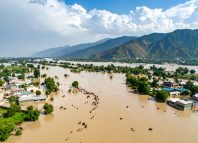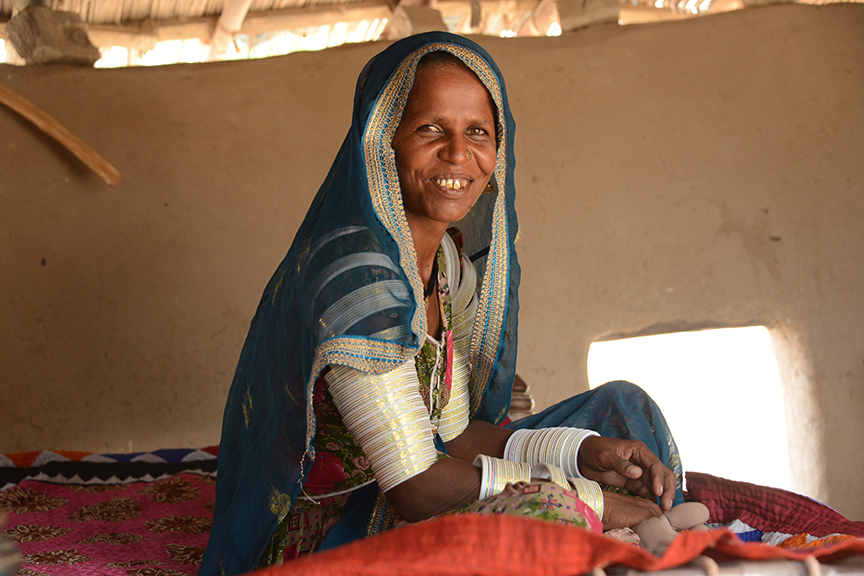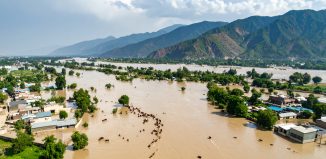Eliminating barriers for marginalised rural women to access Healthcare
Mohtha, a Dalit mother of four young children, always dreamt of doing something progressive for her small village, located in a remote part of Umerkot. “People here have very limited awareness on vaccination and no health team comes to us for vaccinations. Additionally, nobody chooses to vaccinate their children or women, nor do they take immunisation seriously and this is mainly due to the lack of awareness on health education and exposure. Many of the Hindu families also opt for natural remedies due to the factor of untouchability. The Dalits are not treated by other Hindus or Muslims due to untouchability. In many cases, even child births delivered at home are conducted without Traditional birth attendants (TBA). While others have the support and expertise of TBA for home deliveries.”
Mohtha has been a member of a village steering committee in Haji Chanesar Mari (Umerkot) since March 2021. The committee comprises of ten people from the village, including both men and women, and was established under one of Community World Service Asia’s Equality, Inclusions and Participation (EIP) initiativesⁱ.
One of the project’s outcomes aims at improving community structures to educate and empower underprivileged communities to reduce the culture of discrimination and untouchability in Pakistan. The steering committee members selected under the project were trained on effectively highlighting, analysing and addressing challenges and issues around untouchability in their community through a workshop conducted in December last year.
As a steering committee member, Mohtha focuses on health, particularly on increasing access to high-quality healthcare for women and children. “Belonging to a marginalised group came with its challenges. Some rigid mind-sets would hesitate to conduct check-ups or tests as it would include the element of touch. It was after I joined the Steering Committee that I was told that every individual has equal health rights and an equal right to live a healthy life. The training I took focused on promoting sexual and reproductive health and rights, which are essential for saving lives and lowering health-related problems for women and children. A session on enhancing nutrition to ensure the wellbeing, and health of women, children, and adolescents in particular, was quite useful and informative. Moreover, we also learned to raise awareness on vaccinating women and children. We were also made aware of safety from coronavirus and following SOPs to avoid transmission of the virus.”
Untouchability is a direct product of the caste system. It is an attitude on the part of a whole group of people that relates to a deeper psychological process of thought and belief, translated into various physical acts and behaviours, norms and practices. Untouchability is present and practised in an infinite number of forms in a majority of Hindu populated areas. At the village level Dalits are barred from using wells used by non-Dalits, forbidden from going to the barber shop and entering temples, while at the level of job recruitment and employment Dalits are systematically paid less, ordered to do the most menial work, and rarely promoted. Even at school, Dalit children may be asked to eat separately.
Poverty, inaccessibility and inequality prevent many women, children and adolescents from accessing quality health care they need to survive and thrive. And to add to this, untouchability becomes another source of inaccessibility to healthcare for these population groups.
ⁱ Under the project titled, Social inclusion and justice for marginalized minority communities in Pakistan







